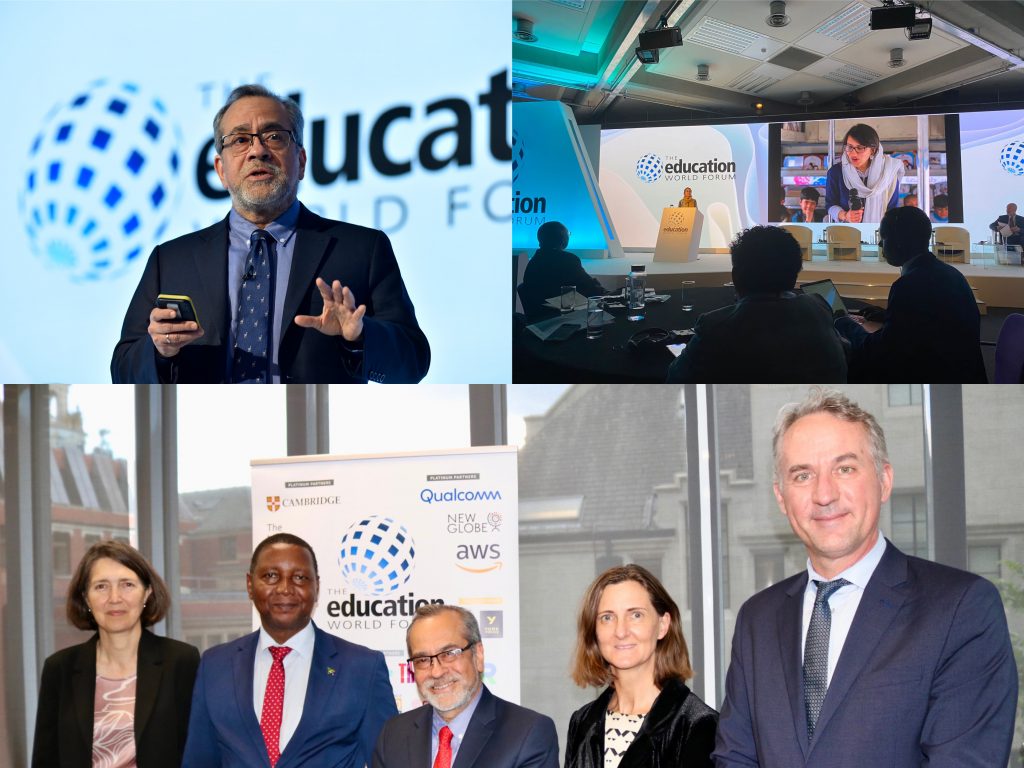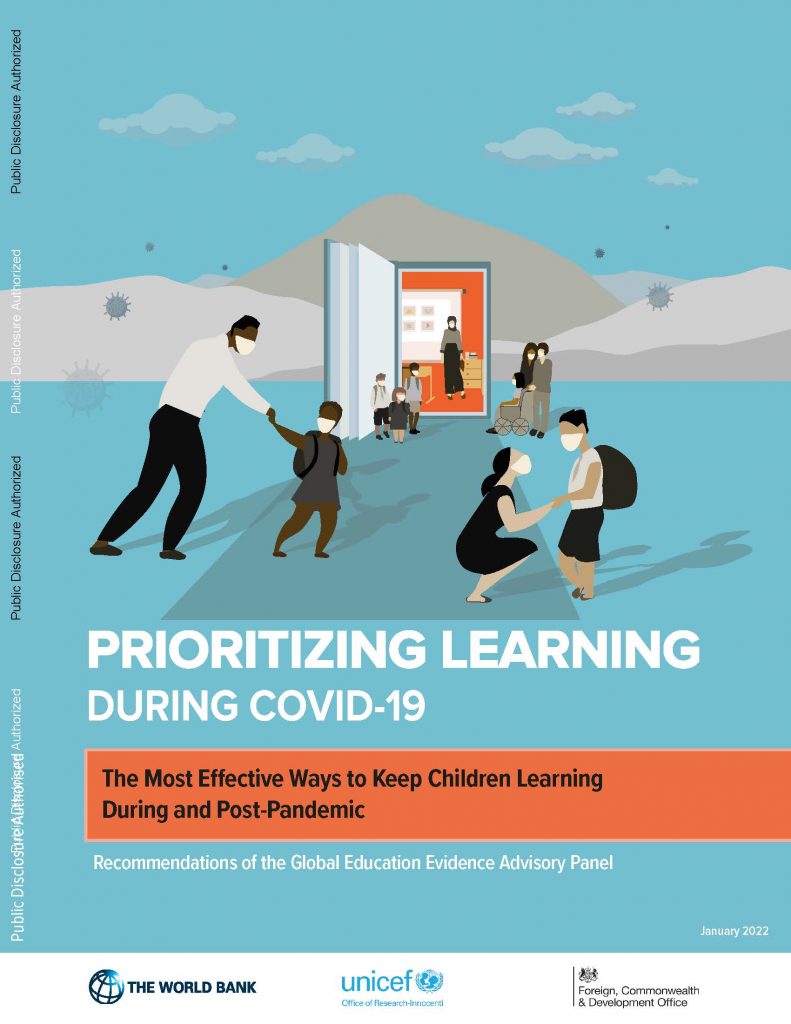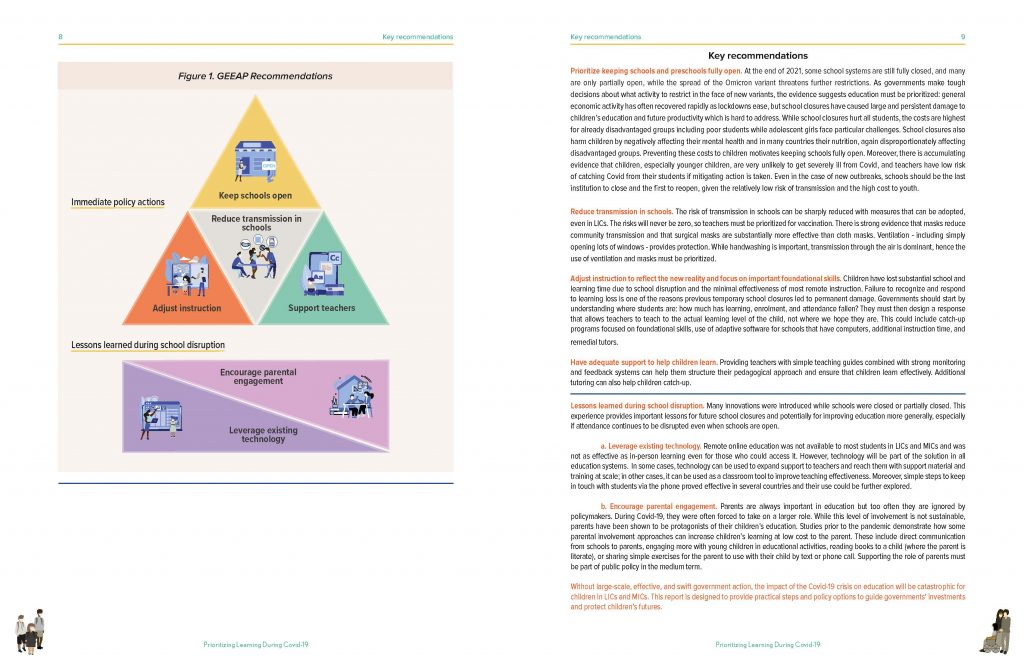News
Discussing evidence at the Education World Forum

By Emily Trinder and Charlie Covington
The Education World Forum (EWF) is the largest annual gathering of education and skills ministers in the world, held in London each year. It brings together Ministers of Education, Higher Education and Skills, their advisors, and delegations from across the world. Together, they address key issues and share the education system challenges they face, the solutions they have found, the learning that has occurred, and the successes they have achieved.
The event is supported by the Foreign Commonwealth and Development Office (FCDO), the Department for Education, the Department for International Trade, and the British Council.
This year, responding to the impact the pandemic has had on education was high on the agenda. Many, including the UK’s Secretary of State for Education, Nadhim Zahawi, shared their country’s experience.

Photographs: Chief Economist at the Foreign, Commonwealth & Development Office (FCDO): Rachel Glennerster, Member of Parliament of Tanzania: Adolf Mkenda, Former Minister of Education of Peru and Global Director of Education Practice at the World Bank: Jaime Saavedra, Senior Social Development Adviser at FCDO: Rachel Hinton, Global Director of Education and Adolescent Development at UNICEF: Robert Jenkins, Founder of Charmagnz: Freshta Karim.
On the main stage, we also heard from Freshta Karim, Founder of Charmagnz, who shared her experiences of working with women in Afghanistan to keep access to education and books alive, since girls have been banned from attending school. Her colleagues have managed to keep 16 libraries open and over 200 children visit them each day.
As MannionDaniels, we attended the event to support the Global Education Evidence Advisory Panel (GEEAP). We currently manage their Secretariat, and several of the panel attended EWF to share the evidence and recommendations of the recently launched ‘Prioritizing Learning During COVID-19: The Most Effective Ways to Keep Children Learning During and Post-Pandemic’ report (below).

Photographs: report cover and inside.

Alongside a spot on the main stage where GEEAP member Sylvia Schmekles, Provost of Universidad Iberoamericana, Mexico City, shared the report findings, we facilitated formal side meetings between members of the GEEAP and various country ministers. Over the course of three days, GEEAP panellists Rachel Glennerster (previously Chief Economist at FCDO) and Sylvia met with senior delegates from across Africa and Asia to discuss the key recommendations from the GEEAP report, and how they could be applied to specific national education policies. They gave specific evidence on recovering learning loss due to the pandemic and discussed effective foundational learning recovery strategies.
The content of each meeting was tailored to the insight, concerns, and comments of individual countries, but themes carried throughout them all. These included the need to assess current learning levels to develop appropriate interventions for learning recovery, and ongoing ideas for adjusted instruction to ensure teachers are instructing at the right level for children to learn. For so many students across the world, the pandemic was hugely disruptive to schooling and the learning losses require immediate, effective interventions. The discussions during our side meetings were therefore based on how to support teachers, engage parents, and leverage technology in a post-Covid-19 era to ensure effective learning catch-up.
The panel works to encourage the use of evidence in education policy making to improve learning outcomes. Following EWF, we will be securing future meetings and events across Africa and Asia to continue sharing the report findings. Next month, we are facilitating an in-person event in Delhi for 50 prominent policymakers, researchers, academics, and practitioners to discuss one of the GEEAP recommendations centred on adjusted instruction, and how it can be applied in India.
Find out more about the GEEAP and read the report.


